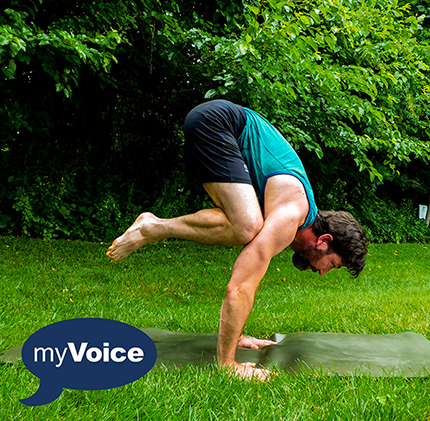Posted by retired Air Force Master Sgt. Chris Eder on June 20, 2016
 Retired Air Force Master Sgt. Chris Eder practices yoga, which helps him with posttraumatic stress disorder (Courtesy photo by Chris Eder)
Retired Air Force Master Sgt. Chris Eder practices yoga, which helps him with posttraumatic stress disorder (Courtesy photo by Chris Eder)
As our medical understanding of the brain continues to grow, treatment options for brain-related issues continue to expand. Service members with a psychological condition or traumatic brain injury now have a variety of clinical treatment options as well as supplemental care options. These choices for care can feel overwhelming or confusing at times. This series will feature stories by service members and veterans sharing how a particular treatment, either clinically recommended or complementary, helped them cope and heal. All experiences shared are that of the author. Anyone coping with a psychological health concern or traumatic brain injury should work with their health care provider to determine the best treatment option for their individual needs.
In the first post, retired Air Force Master Sgt. Chris Eder describes how yoga helped him with posttraumatic stress disorder (PTSD).
When I first practiced yoga in 1999, I wasn’t seeking enlightenment or to become a better person. I wasn’t even looking for relief from PTSD. I was in pain from a pinched sciatic nerve, and I discovered that yoga stretches made my pain go away for longer periods than cortisone shots. It wasn’t long before I noticed that yoga also relieved symptoms of my attention-deficit hyperactivity disorder. I was hooked!